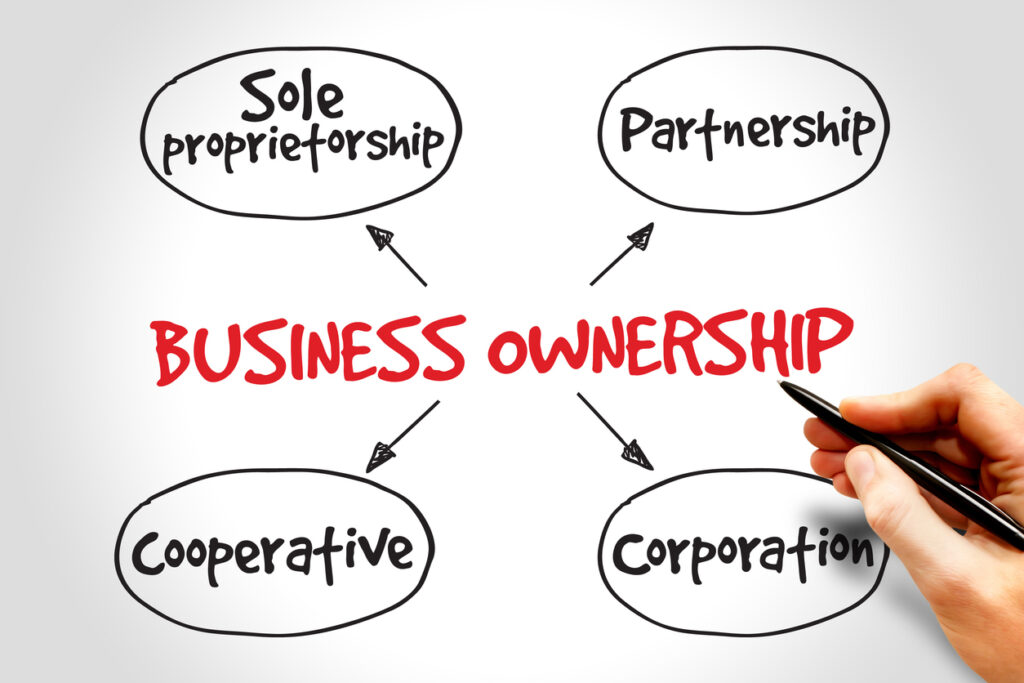How to Choose the Right Legal Entity for Your Business
If you are considering starting a business, it’s easy to get caught up in the excitement over your idea and skip important details like legal entities. In fact, many people have only the vaguest notion about what different entities are available. They may miss opportunities to save money on taxes and, most importantly, protect their personal assets in the event of lawsuits or contract disputes. They might also risk losing control of the business and their ideas to their partners.
Everyone is encouraged to consult with a startup business lawyer before deciding on a legal entity for their business. You want to make sure that you understand the options and select the one that meets your needs.

Factors to Consider in Choosing a Business Structure
Before you can decide on the right legal entity, there are several important factors to consider. Here are some of the ones that come up most often:
- Protection of personal assets: One of the most important factors to consider is whether you’re prepared to risk your home, your car, and any other assets if the business gets into debt.
- Partners: If you are starting a business with one or more other people, you will want to define who owns what and the personal responsibility of each owner.
- Taxes: Legal entities are often taxed differently. Which one you choose can make a big difference on your taxes.
- Funding: When you look for backers for the business, your legal entity can make it easier or more challenging to secure funding.
- Paperwork: Some legal entities require no special paperwork. Others require a significant amount before you can start operating.
- Registration: Registration is like more paperwork, but sometimes registration of your legal entity is necessary to get tax benefits.
- Intellectual property: If your business is based on a certain piece of intellectual property, it’s important to determine who owns that idea.
Weighing these factors can be difficult. A business planning lawyer can help you sort through them to find the best option for your business.
The Simplest Options
Many people default to the simplest options for setting up their business: sole proprietorship and limited partnership. These are functional legal entities and may be right for your business, but it’s important that you aren’t just choosing them because they’re easy. In some cases, these legal entities can cause big problems.
Sole Proprietorship
A sole proprietorship is the simplest business option. It’s the default if you just start doing business without filing any paperwork. Just choose a name for your business and start selling.
Who’s it for: Small and home-based businesses with low overhead, low startup costs, and minimal liability exposure. This can be a good choice for people who are operating multi-level marketing companies, those who are starting a business and are under 18, or those that are doing a side business such as babysitting a few hours a week.
Disadvantages: Your personal property is exposed to any legal risks your business faces. Unless you are in an industry that is very low risk and where you are going to make very little money, a sole proprietorship is usually not recommended. In addition, it carries a heavy tax burden because you have to pay self-employment taxes. Finally, it can be hard to secure backing as a sole proprietorship.
General Partnerships
General partnerships are the equivalent of sole proprietorship for multiple people. There is no paperwork required, though it is recommended. If your partner is anyone except for your legal spouse, you should have a partnership agreement to make sure everyone knows their rights and responsibilities though.
Who’s it for: Businesses started by married couples with minimal liability exposure.
Disadvantages: Personal property might be exposed to legal risks. Ownership of business assets can be murky. This is extremely problematic if people are bringing different intellectual property into the partnership. Tax burden can also be murky: depending on how leadership is shared, limited partners may or may not have to pay self-employment taxes. A robust partnership contract is recommended to make sure these issues are clearly laid out from the beginning unless your partner is your legal spouse.

Finding the Smartest Option
Although the above options are (relatively) simple, they may not be ideal for your business in many situations.
For example, any individual working in areas with significant liability risks, like construction or healthcare, will want to insulate their personal property from business liability. You can do this with a limited liability company (LLC). However, an LLC won’t alleviate your tax burden unless you choose to be taxed as an s-corporation: you will still need to pay self-employment taxes. In some cases, an corporations and LLCs can reduce your taxes if you are a s-corporation, but other times a C corporation is the better option.
For partners who aren’t married to each other, partnerships can work, if you get the help of a business formation lawyer in drawing up the partnership documents. Other times, a corporation makes more sense.
Talk to a Start-Up Business Lawyer
Are you considering starting a business? Before you start, talk to a start-up business lawyer about the different options to determine which one might be best for you. If your new business is based in Denver, the Law Office of E.C. Lewis will make sure you choose the right legal entity to protect your interests.
Elizabeth Lewis is a business planning lawyer who has helped many people start businesses in Denver and throughout Colorado. She has extensive experience helping small businesses. Since 2007, she has helped many startups in Colorado get on firm legal footing before they made it big, including software companies and others with valuable IPs. She is focused on results and understands the challenges your business faces starting out. She’s not only great at setting up legal entities, she has the extensive experience necessary to address just about any legal issue your business encounters moving forward.
Finding the right legal entity of your business can boost your odds of success. When you’re ready to start a business, Elizabeth is ready to help you start it right. Please contact the Law Office of E.C. Lewis today for a consultation.

